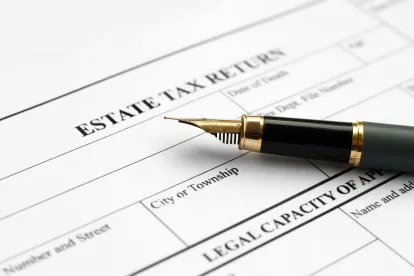On October 4, 2023, Massachusetts Governor Maura Healey signed a historic tax relief package titled, “An Act to improve the Commonwealth’s competitiveness, affordability, and equity.” The tax package encompasses a wide range of relief for families, businesses, and individuals throughout Massachusetts.
One of the more interesting aspects of this law is the change to Massachusetts estate taxes that will have a significant impact on existing estate plans and tax planning. It has been 20 years since any changes have been made to existing estate tax law in the Commonwealth. Key highlights of the estate tax changes are:
Effective January 1, 2023, for the estates of decedents dying on or after January 1, 2023, those estates are exempt from Massachusetts estate tax if the value of the federal taxable estate is not more than $2 million. This is an increase from the previous threshold of $1 million. Notably, the Act does not index the new threshold for inflation and the $2 million exemption is not “portable” between spouses. This means a surviving spouse cannot inherit the unused exemption from their deceased spouse.
The law also provides a uniform tax credit that eliminates the so-called “cliff effect.” Estate tax is only paid on the excess of assets over $2 million, which reflects a change on how the tax is calculated. Under the previous law, if an estate reached the $1 million threshold, the entire estate was taxed.
The new law also changes how a Massachusetts resident’s estate is calculated when owning real and personal property outside the Commonwealth, by reducing the tax by the proportion of the overall estate made up of the non-Massachusetts assets.
The law is retroactive to January 1, 2023. For Massachusetts estate tax returns already filed in 2023 with tax paid, we expect the Massachusetts Department of Revenue will recalculate the estate tax and issue refunds to the affected estates. There is no need to file an amended return.
Implications for existing estate plans
The increased estate tax threshold means more estates will be exempt from the estate tax, which could allow for more assets to be passed to heirs. These changes in the estate tax provide an excellent opportunity to review and revise current estate plans to take advantage of the tax savings the new laws provide.




 />i
/>i

